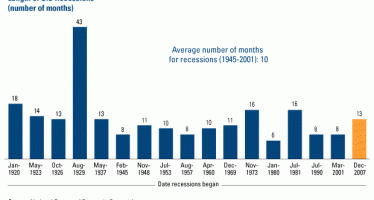New law needed to simplify CA budget
By Wayne Lusvardi
Every year state Senator Joe Simitan, D-Palo Alto, holds a contest for his constituents to submit ideas for new laws. Simitan boasts that 18 submittals have been enacted as new laws since 2001. Well, here’s an “oughta be a law” challenge for Sen. Simitan:
A new law is needed to make state budgeting more clear.
The reason stems from AB 1495, which added Section 35.50 to the budget for fiscal year 2012-13, which began on July 1, 2012. This new section of the budget shifts the method of reporting funds from “cash accounting” to “accrual accounting.”
This is important.
Under cash accounting, revenue and expenses are recorded at the same time.
But under accrual accounting, the reporting of revenues and expenses may occur at a different time.
For example, State Legislative Analyst Mac Taylor’s new forecast of state budget revenue surpluses starting in 2014 is based on counting two years’ worth of revenues from the new taxes in Propositions 30 and 39, then applying the revenues to just one fiscal year. This distorts the actual budget picture and leads to inflated budget estimates.
Budget Section 35.50 means that the Legislature is returning to its old “tax and spend” habit of spending on luxury public pensions and environmental programs.
Unknown revenues
The LAO is concerned because this new rule will result in “no longer [having] a good idea of a fiscal year’s revenues until one or two years after that fiscal year’s conclusion.” The LAO is asking for some help from the Legislature so that it can track the actual status of the budget.
The LAO wrote:
“We are now convinced that the problems that this new accrual method will introduce to the budgetary process outweigh its benefits. We recommend that the Legislature direct the administration to develop a simpler, logical budgetary revenue accrual system by 2015. Alternatively, to help ensure the accuracy of our forecasts and improve transparency, we recommend that the Legislature require the administration to document accruals regularly online.”
The problem with the new accounting rule should not be a partisan issue. It’s just accounting.
Now that Democrats soon will have a supermajority in both houses of the Legislature, they’re completely responsible. Republicans can do no more than stand on the beach and shout at the wind.
If a new law isn’t passed to make the accounting more accurate, allowing the LAO to make more accurate budget estimates, the only result will be disaster. The credit-rating houses, such as Moody’s and Standard & Poor’s, will have to downgrade the state’s credit rating even further to reflect the shaky numbers. In turn, lower credit ratings would mean higher payments from the general fund to pay for state and local bonds.
It’s like this. Suppose your income is $50,000 a year several years in a row and you apply for a car loan. The steady income shows your ability to repay is excellent.
But suppose you make $100,000 one year, then $0 the next. The average still is the same: $50,000 a year. But your income is unpredictable, so the auto credit companies would consider you a bad risk.
The same with the state. Accurate, predictable numbers are honest numbers. And honest numbers make the credit agencies happy.
Related Articles
Perks pose risk to all of us
April 22, 2013 By Steven Greenhut SACRAMENTO — The horrific Boston bombings have led to irrational calls for more security
Did schools win state lottery?
Feb. 25, 2010 By KATY GRIMES In an effort to shore up some of the state’s record deficit, a bill
LAO: Possible 2016 recession would devour budget surplus
There is good news and bad news in the impartial California Legislative Analyst’s recent release of its “2014-2015 Budget:




